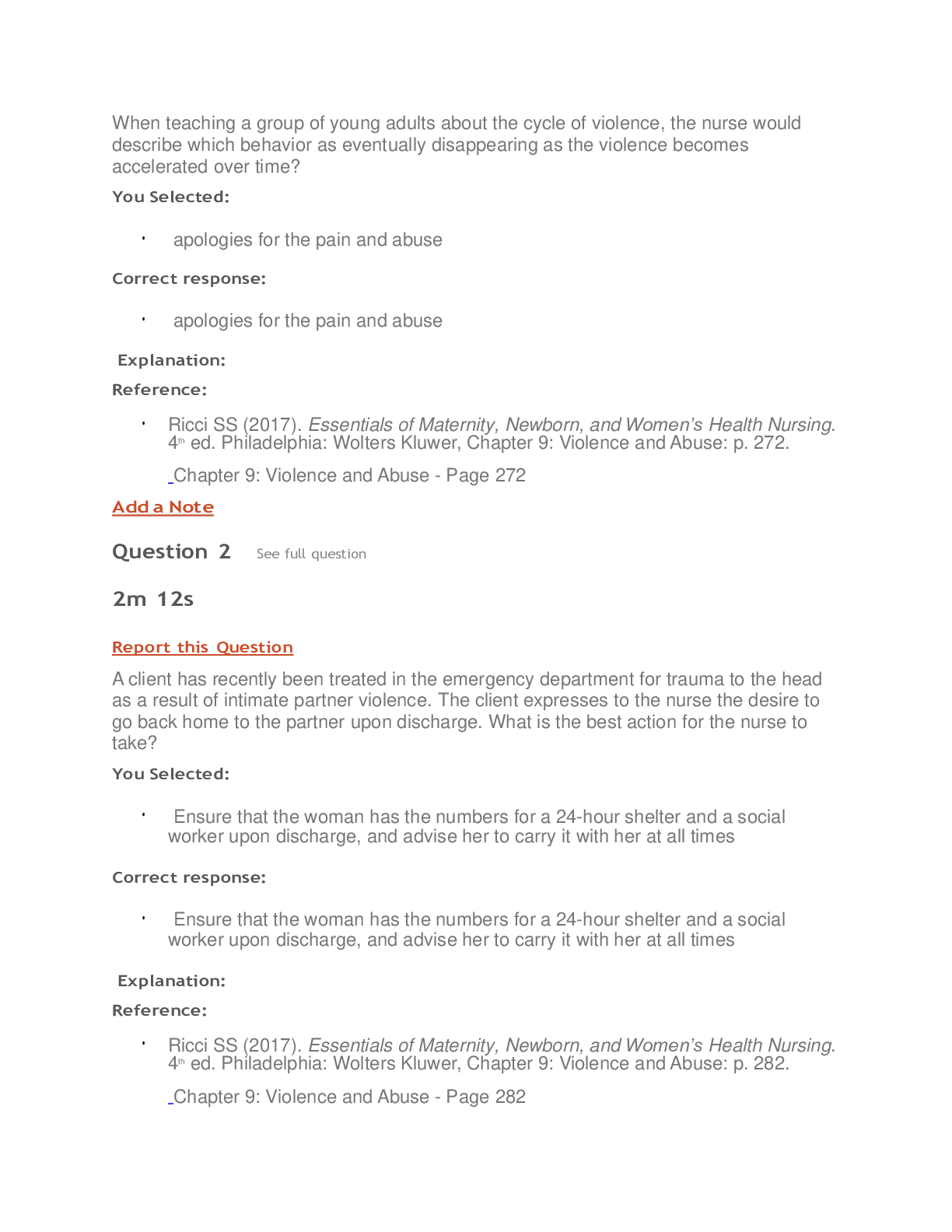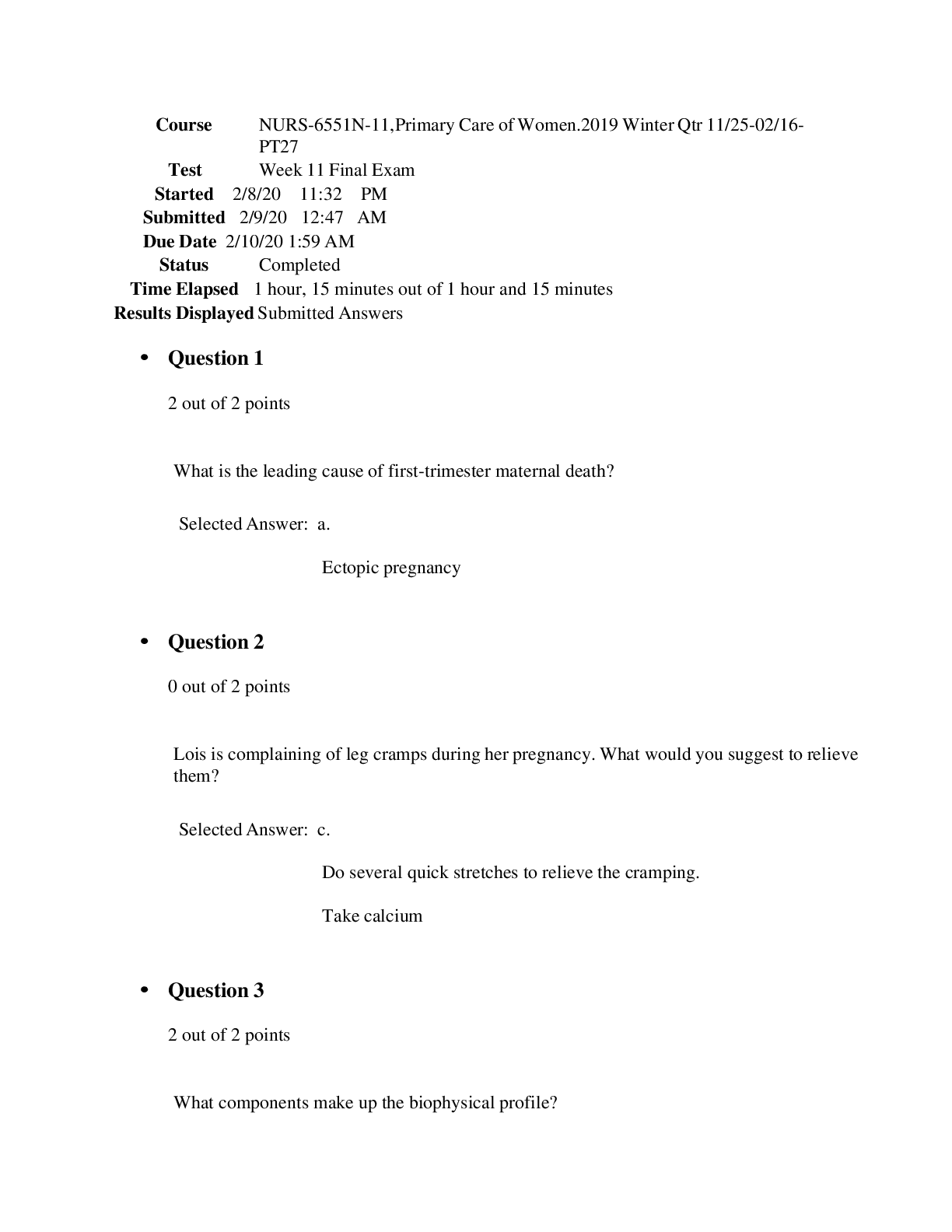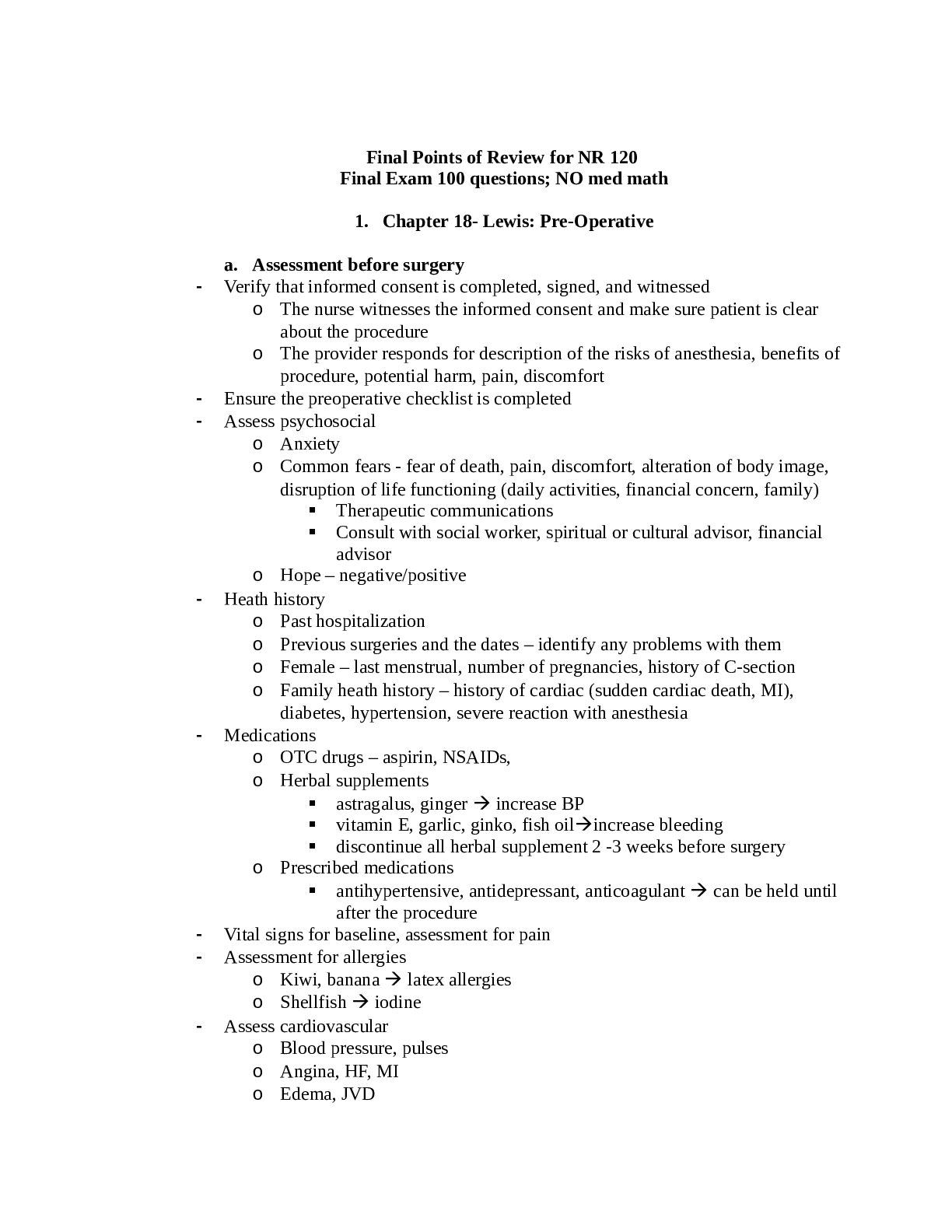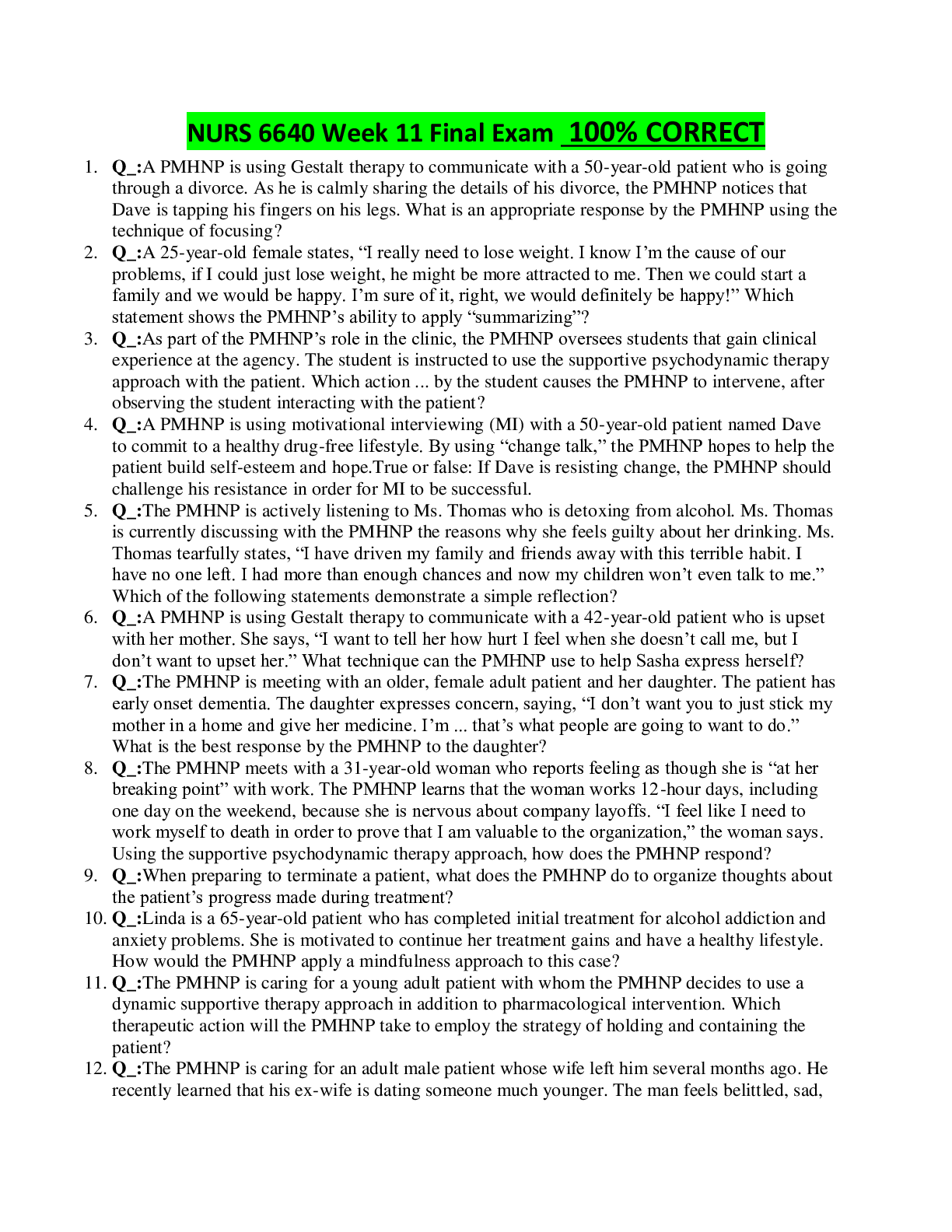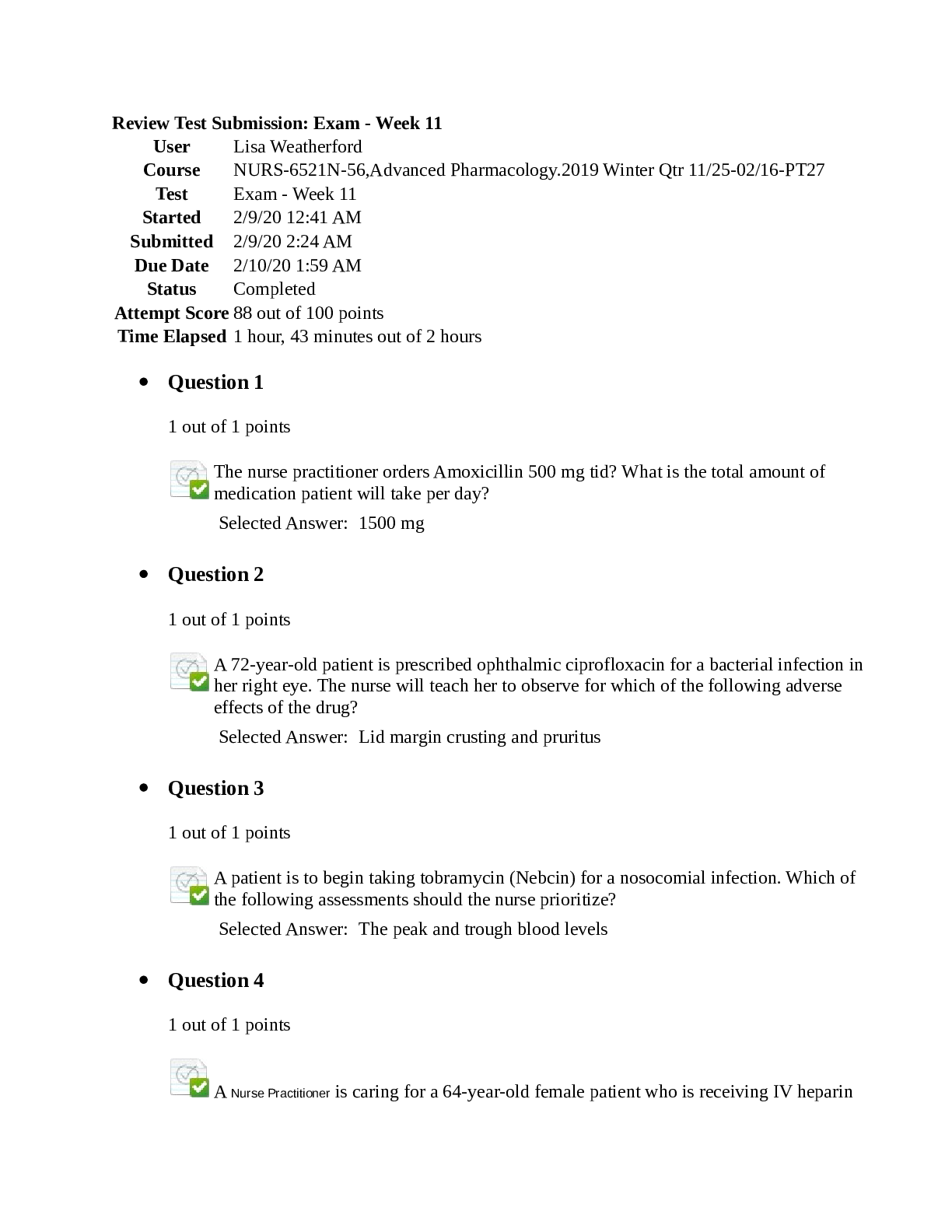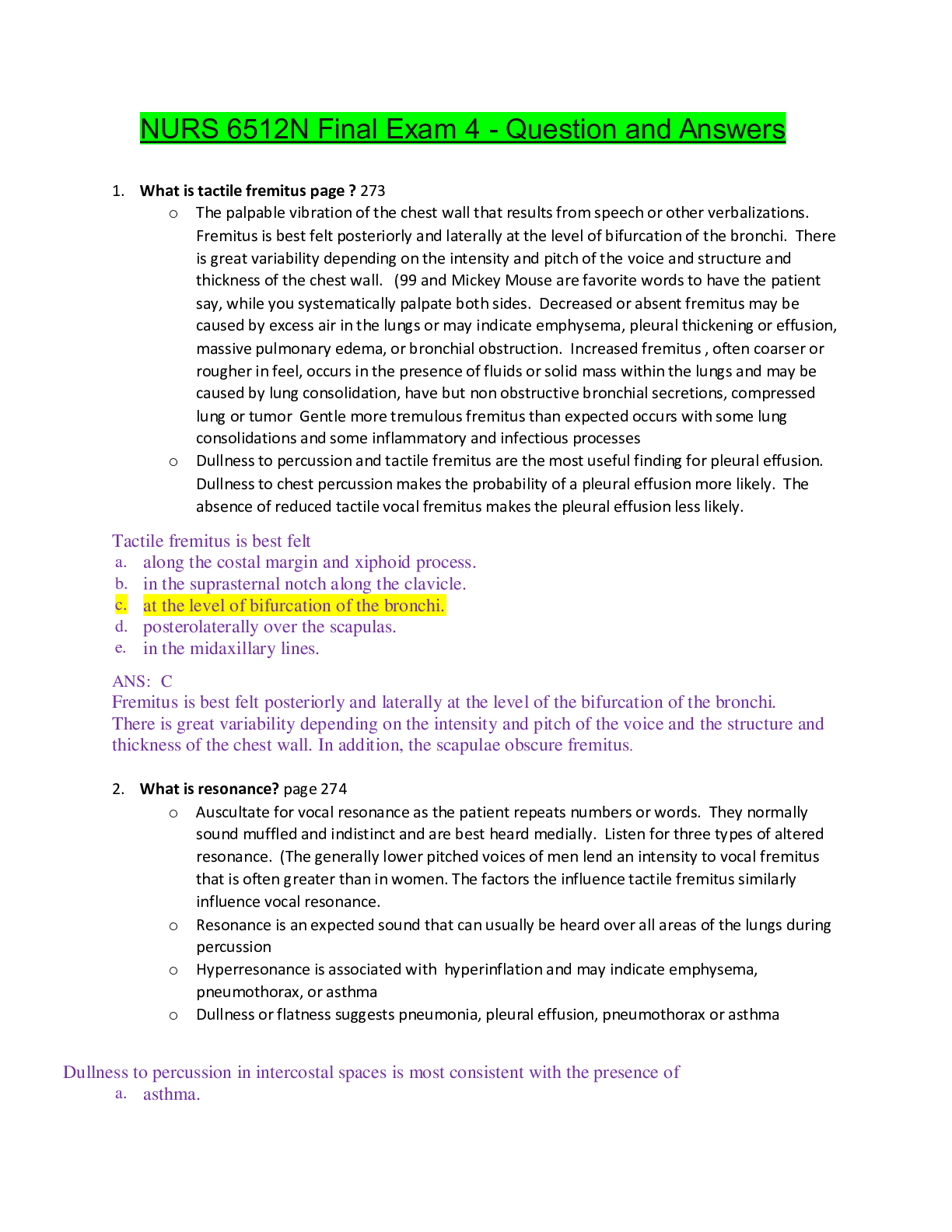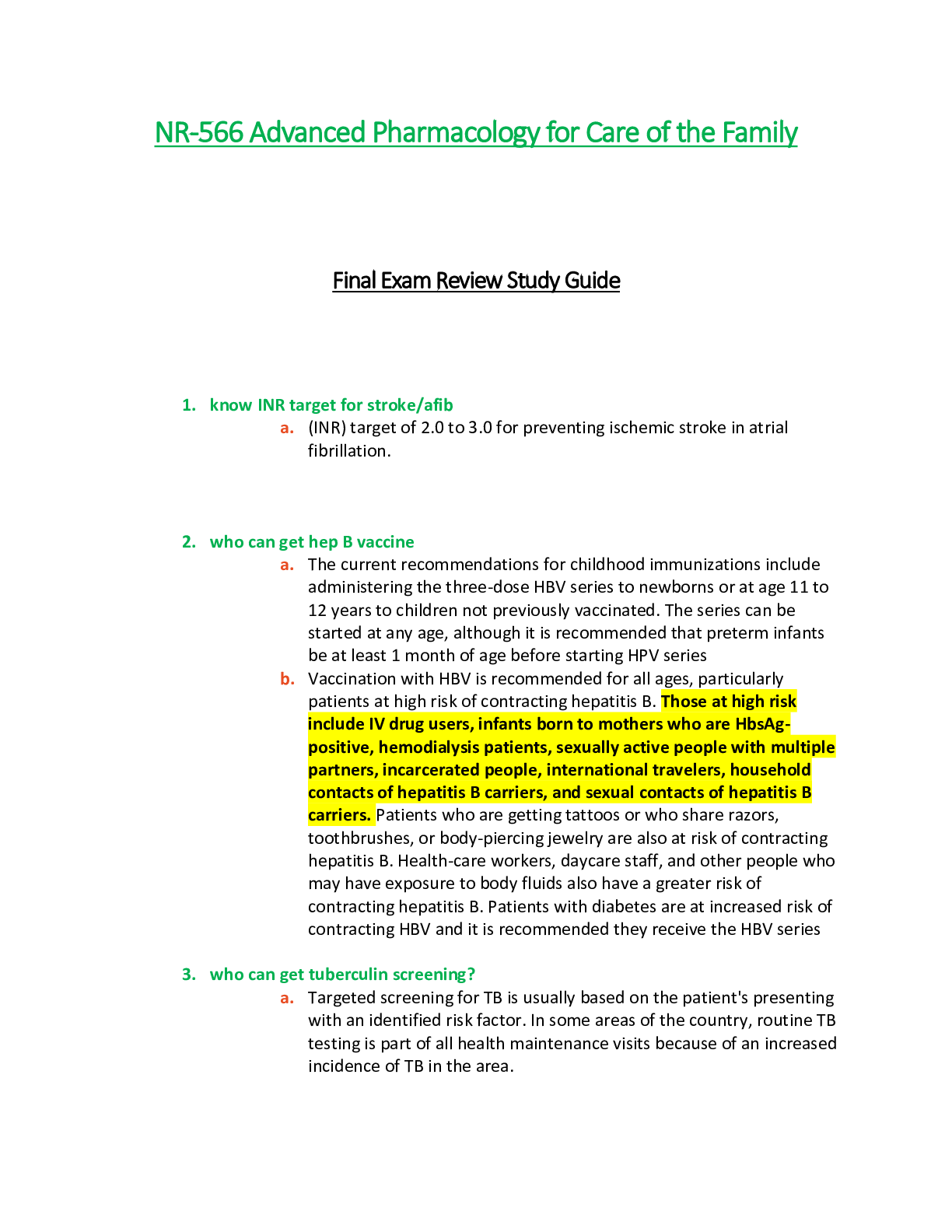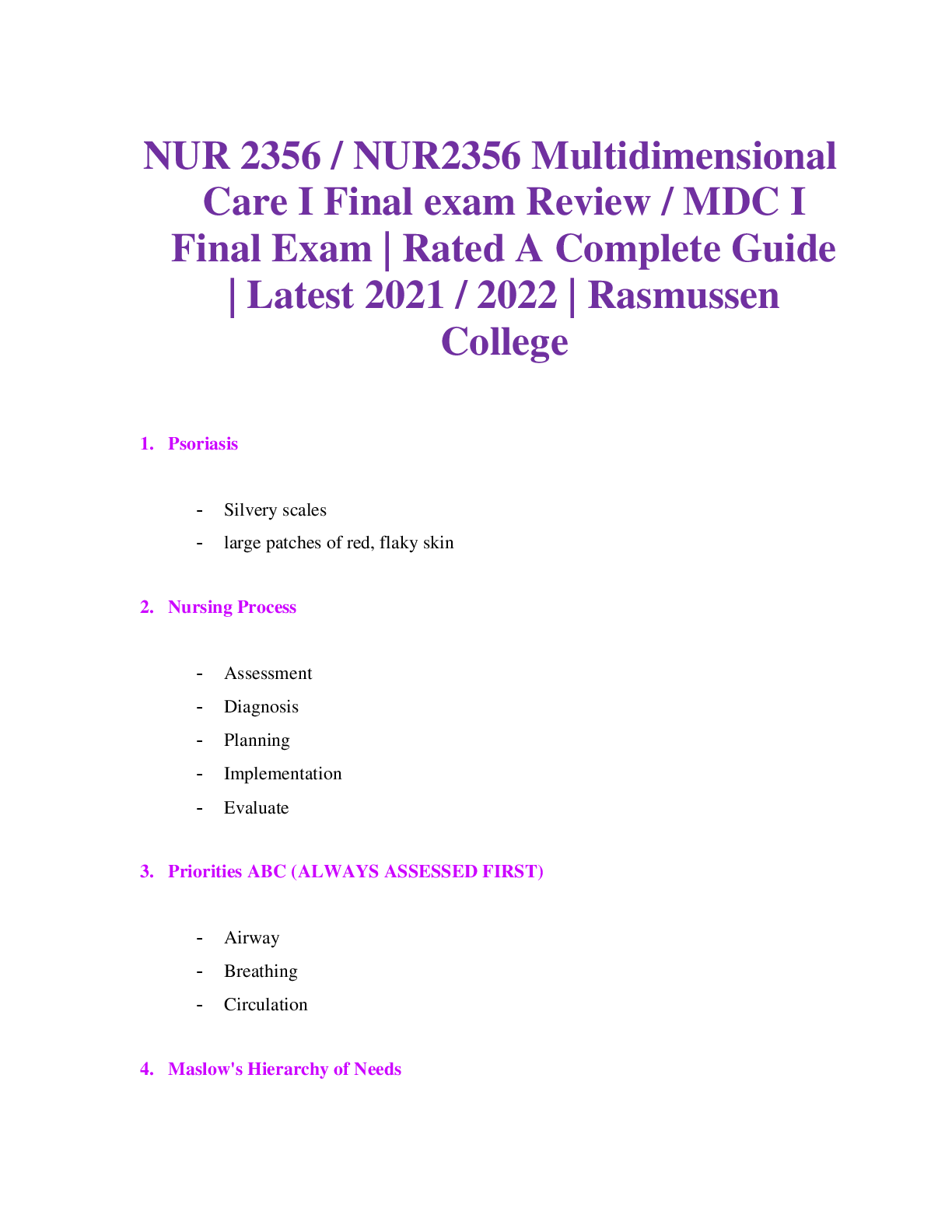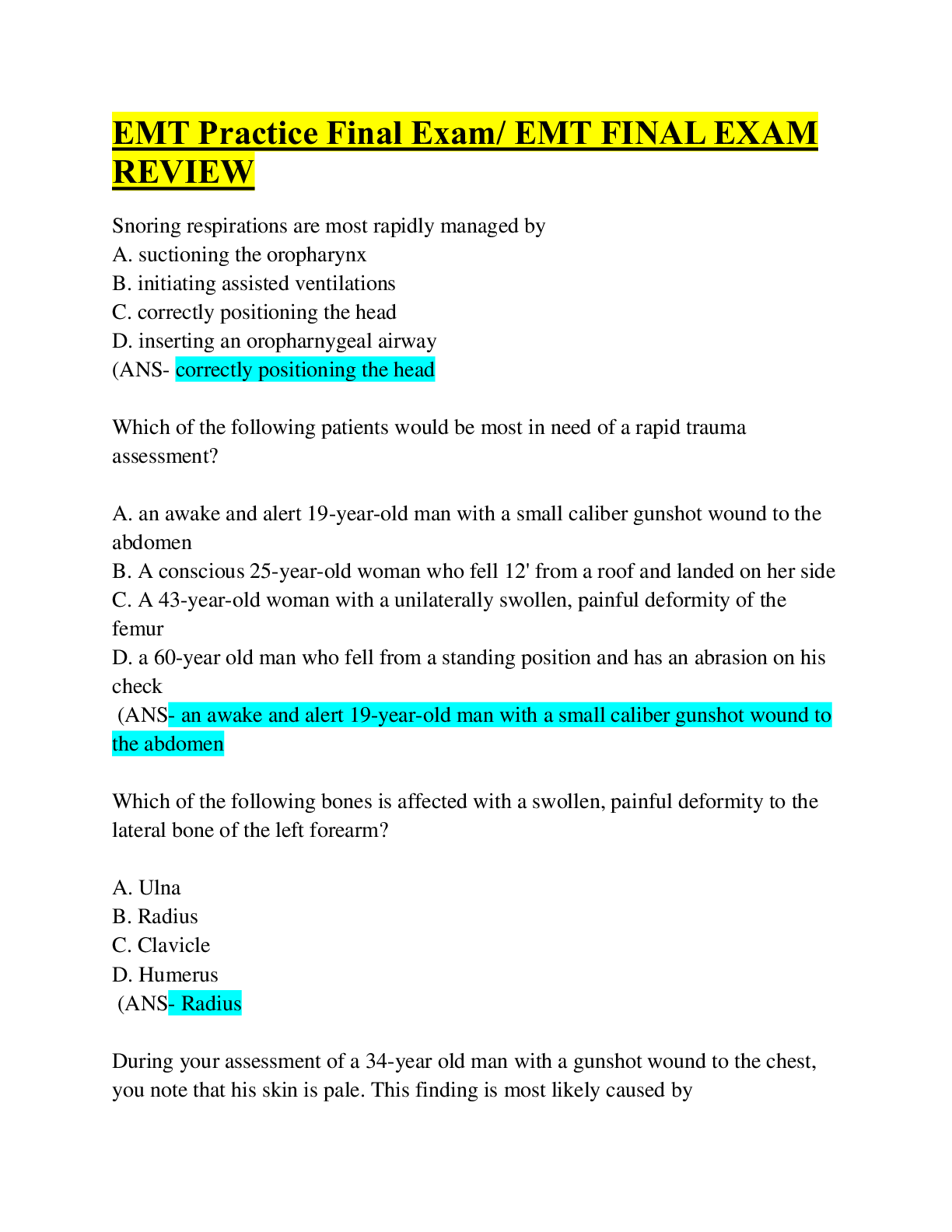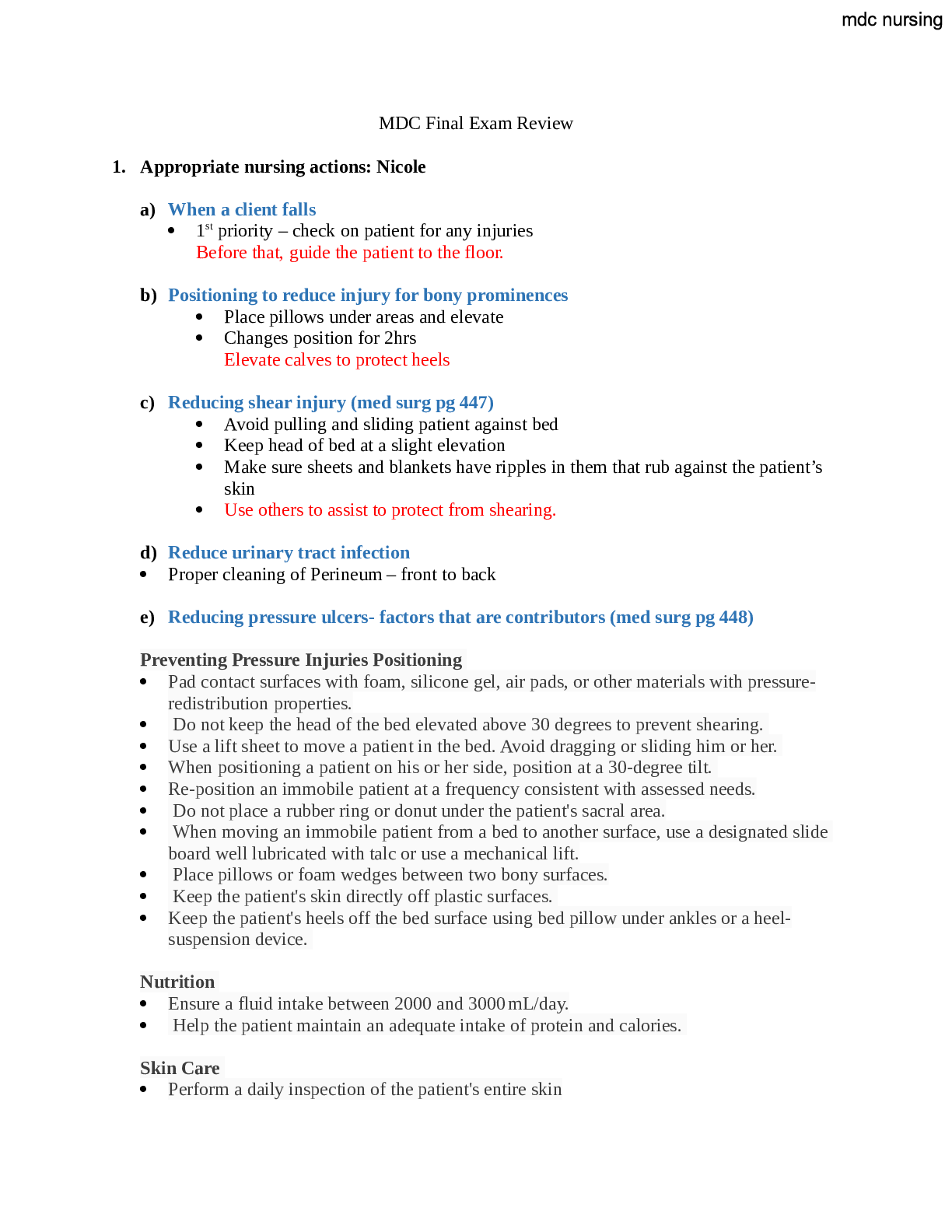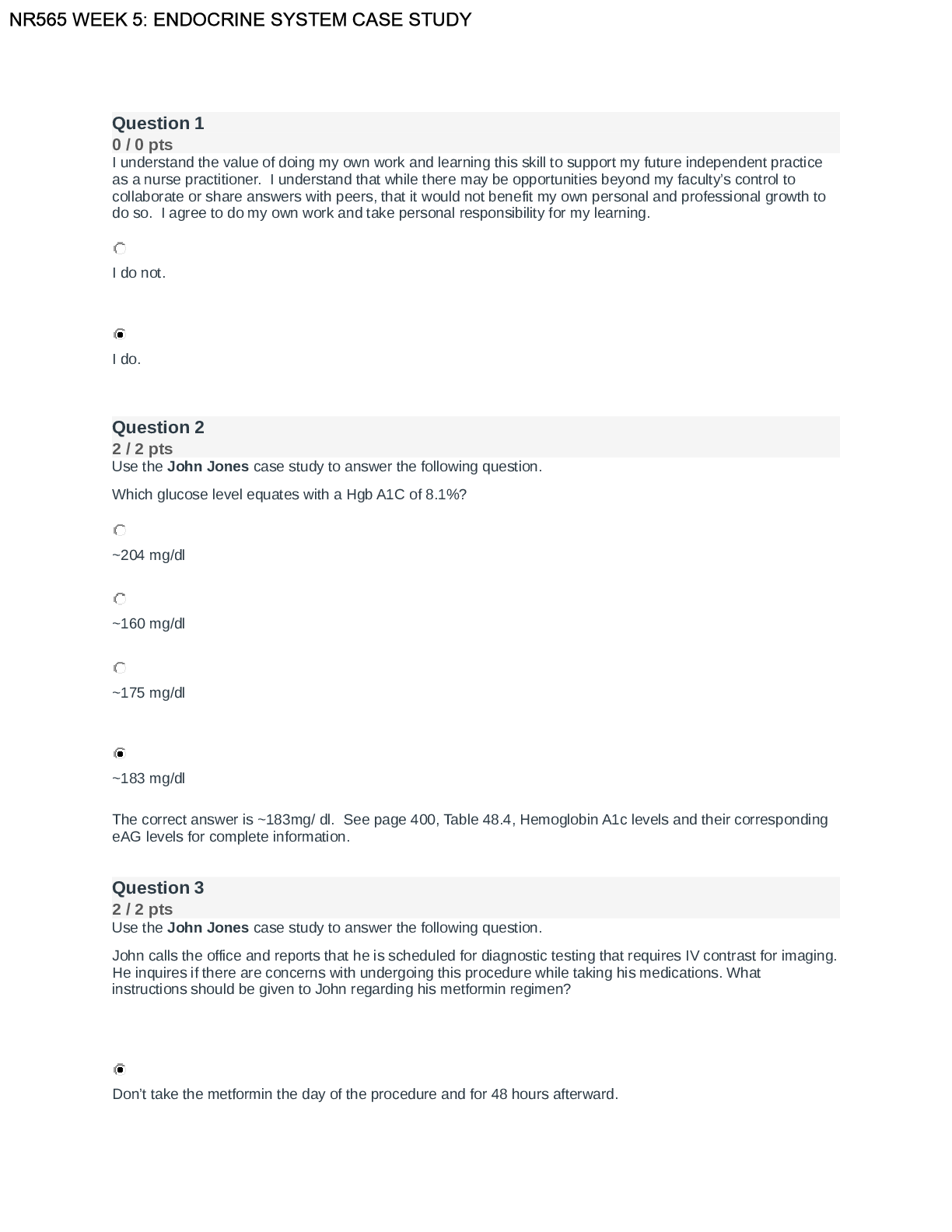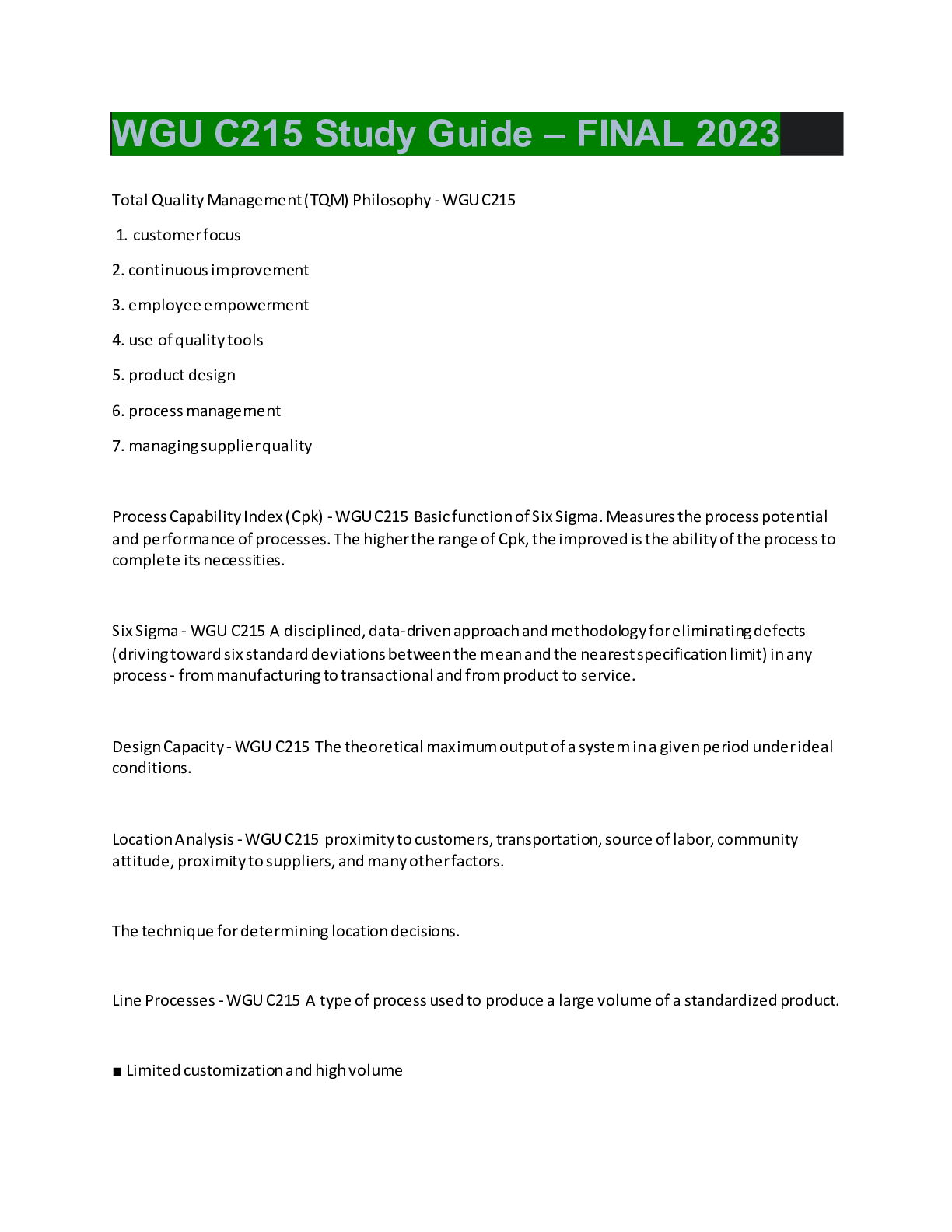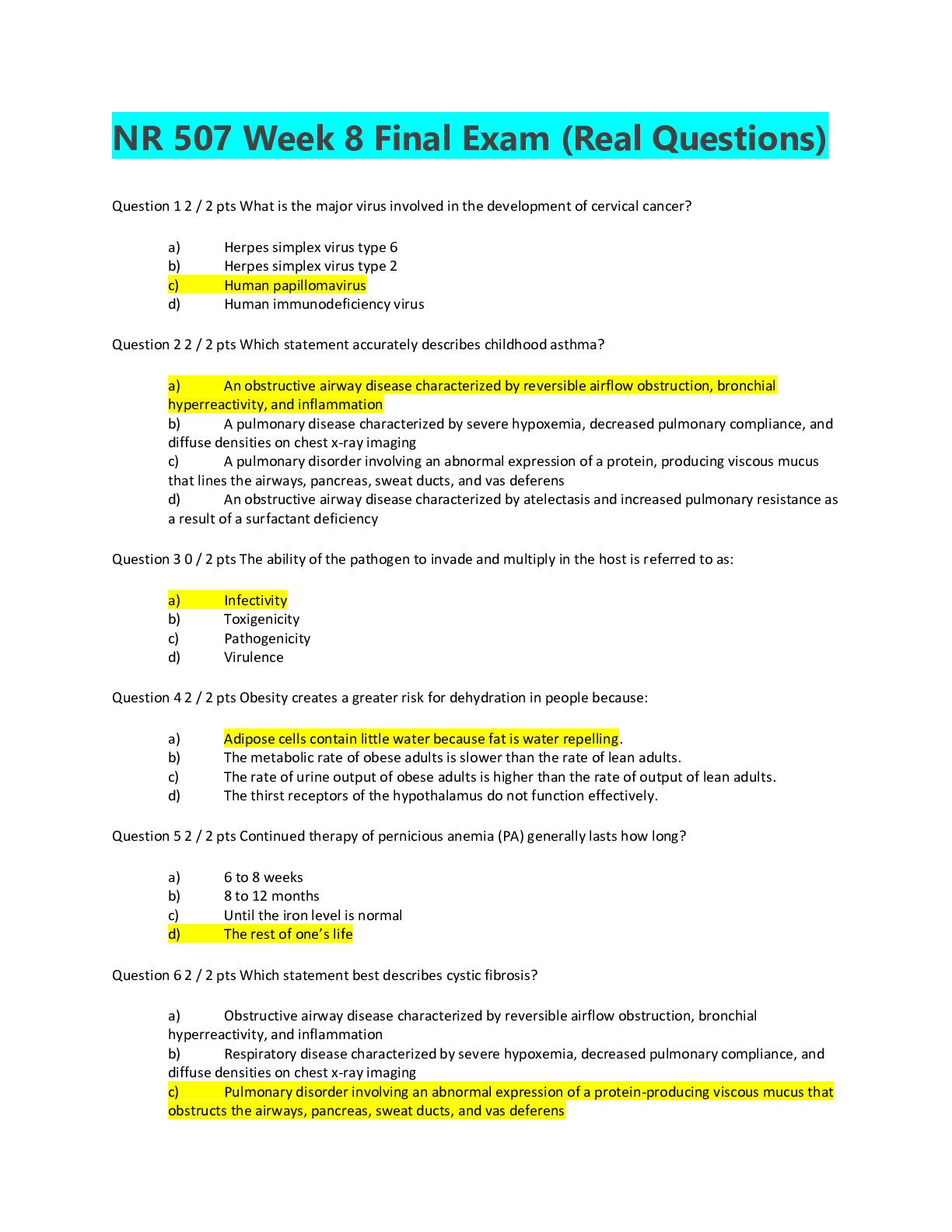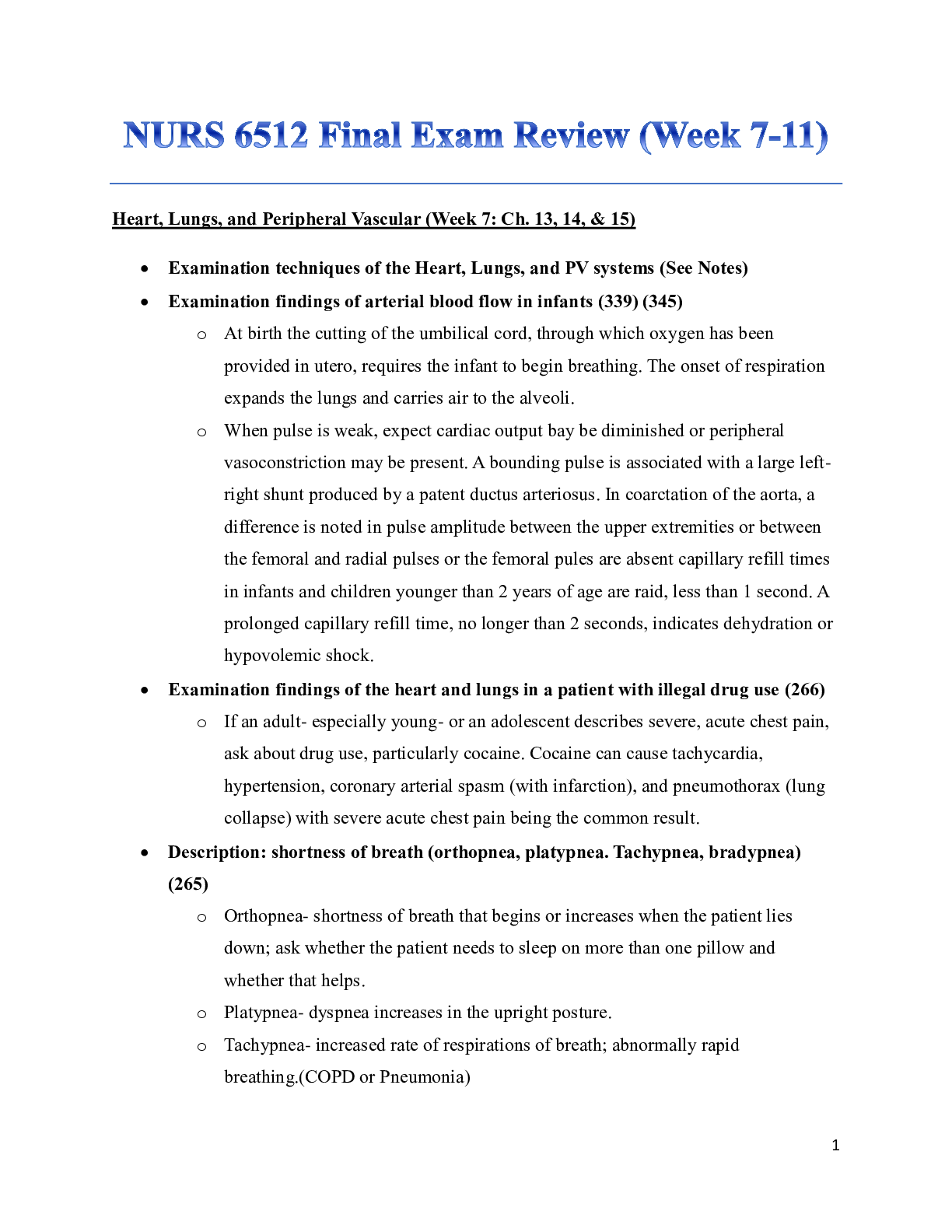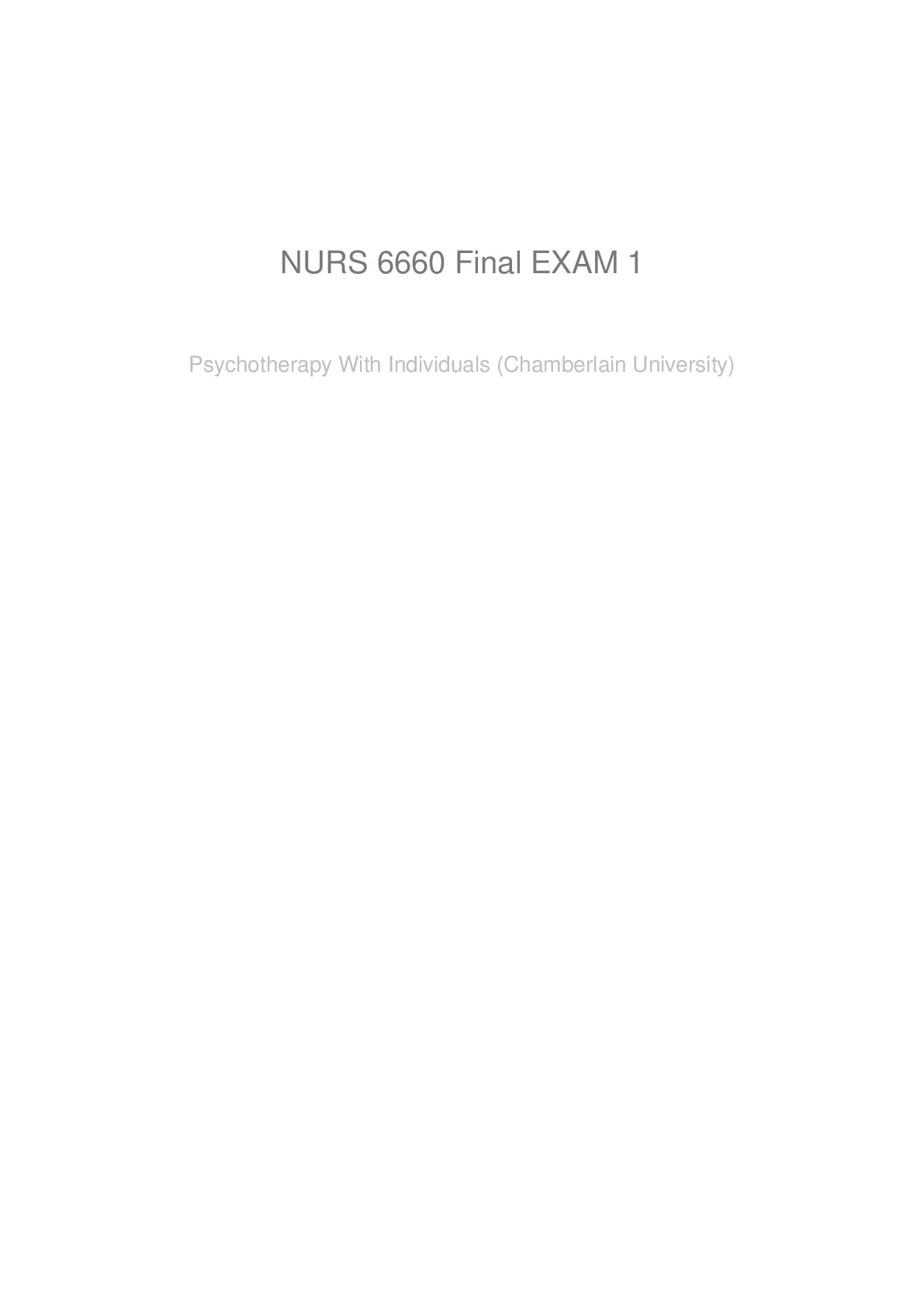*NURSING > Final Exam Review > NR 508 Final Exam 100% correct answers (All)
NR 508 Final Exam 100% correct answers
Document Content and Description Below
NR 508 Final Exam Question 1 2 / 2 pts A patient who has diabetes reports intense discomfort when needing to void. A urinalysis is normal. To treat this, the primary care NP should consider presc... ribing: Question 2 2 / 2 pts A patient reports difficulty returning to sleep after getting up to go to the bathroom every night. A physical examination and a sleep hygiene history are noncontributory. The primary care NP should prescribe: Question 3 2 / 2 pts A 5-year-old child who has no previous history of otitis media is seen in clinic with a temperature of 100° F. The primary care NP visualizes bilateral erythematous, nonbulging, intact tympanic membranes. The child is taking fluids well and is playing with toys in the examination room. The NP should: Question 4 2 / 2 pts An 80-year-old patient with congestive heart failure has a viral upper respiratory infection. The patient asks the primary care NP about treating the fever, which is 38.5° C. The NP should: Correct! Question 5 2 / 2 pts A patient who takes levodopa and carbidopa for Parkinson’s disease reports experiencing freezing episodes between doses. The primary care NP should consider using: Question 6 2 / 2 pts A patient is being tapered from long-term therapy with prednisolone and reports weight loss and fatigue. The primary care NP should counsel this patient to: Question 7 2 / 2 pts The primary care nurse practitioner (NP) sees a 50-year-old woman who reports frequent leakage of urine. The NP learns that this occurs when she laughs or sneezes. She also reports having an increased urge to void even when her bladder is not full. She is not taking any medications. The NP should: Correct! Question 8 2 / 2 pts A 7-year-old patient who has severe asthma takes oral prednisone daily. At a well-child examination, the primary care NP notes a decrease in the child’s linear growth rate. The NP should consult the child’s asthma specialist about: Question 9 2 / 2 pts A patient who is taking isoniazid and rifampin for latent TB is seen by the primary care NP for a routine follow-up visit. The patient reports having nausea, vomiting, and a decreased appetite. The NP should: Correct! Question 10 2 / 2 pts A primary care NP sees a child with asthma to evaluate the child’s response to the prescribed therapy. The child uses an ICS twice daily and an albuterol metered-dose inhaler as needed. The child’s symptoms are well controlled. The NP notes slowing of the child’s linear growth on a standardized growth chart. The NP should change this child’s medication regimen to a: Question 11 2 / 2 pts A patient is newly diagnosed with Alzheimer’s disease stage 6 on the Global Deterioration Scale. The primary care NP should prescribe: Question 12 2 / 2 pts The primary care NP sees a 12-month-old infant who needs the MMR, Varivax, influenza, and hepatitis A vaccines. The child’s mother tells the NP that she is pregnant. The NP should: Correct! Question 13 2 / 2 pts A parent brings a 5-year-old child to a clinic for a hospital follow-up appointment. The child is taking a medication at a dose equal to an adult dose. The parent reports that the medication is not producing the desired effects. The NP should: Question 14 2 / 2 pts An NP orders an inhaled corticosteroid 2 puffs twice daily and an albuterol metered-dose inhaler 2 puffs every 4 hours as needed for cough or wheezing for a 65-year-old patient with recent onset of reactive airways disease who reports symptoms occurring every 1 or 2 weeks. At a follow-up appointment several months later, the patient reports no change in frequency of symptoms. The NP’s initial action should be to: Question 15 2 / 2 pts A patient is diagnosed with a condition that causes chronic pain. The primary care NP prescribes an opioid analgesic and should instruct the patient to: Question 16 2 / 2 pts A patient tells the primary care NP that he has difficulty getting and maintaining an erection. The NP’s initial response should be to: Question 17 2 / 2 pts A 55-year-old patient develops Parkinson’s disease characterized by unilateral tremors only. The primary care NP will refer the patient to a neurologist and should expect initial treatment to be: Question 18 2 / 2 pts A patient who has migraine headaches without an aura reports difficulty treating the migraines in time because they come on so suddenly. The patient has been using over-the-counter NSAIDs. The primary care NP should prescribe: Question 19 2 / 2 pts A woman tells a primary care NP that she is considering getting pregnant. During a health history, the NP learns that the patient has seasonal allergies, asthma, and epilepsy, all of which are well controlled with a second-generation antihistamine daily, an inhaled steroid daily with albuterol as needed, and an antiepileptic medication daily. The NP should counsel this patient to: ………………………CONTINUED………………………. [Show More]
Last updated: 1 year ago
Preview 1 out of 41 pages
.png)
Reviews( 0 )
Document information
Connected school, study & course
About the document
Uploaded On
Feb 14, 2021
Number of pages
41
Written in
Additional information
This document has been written for:
Uploaded
Feb 14, 2021
Downloads
0
Views
41

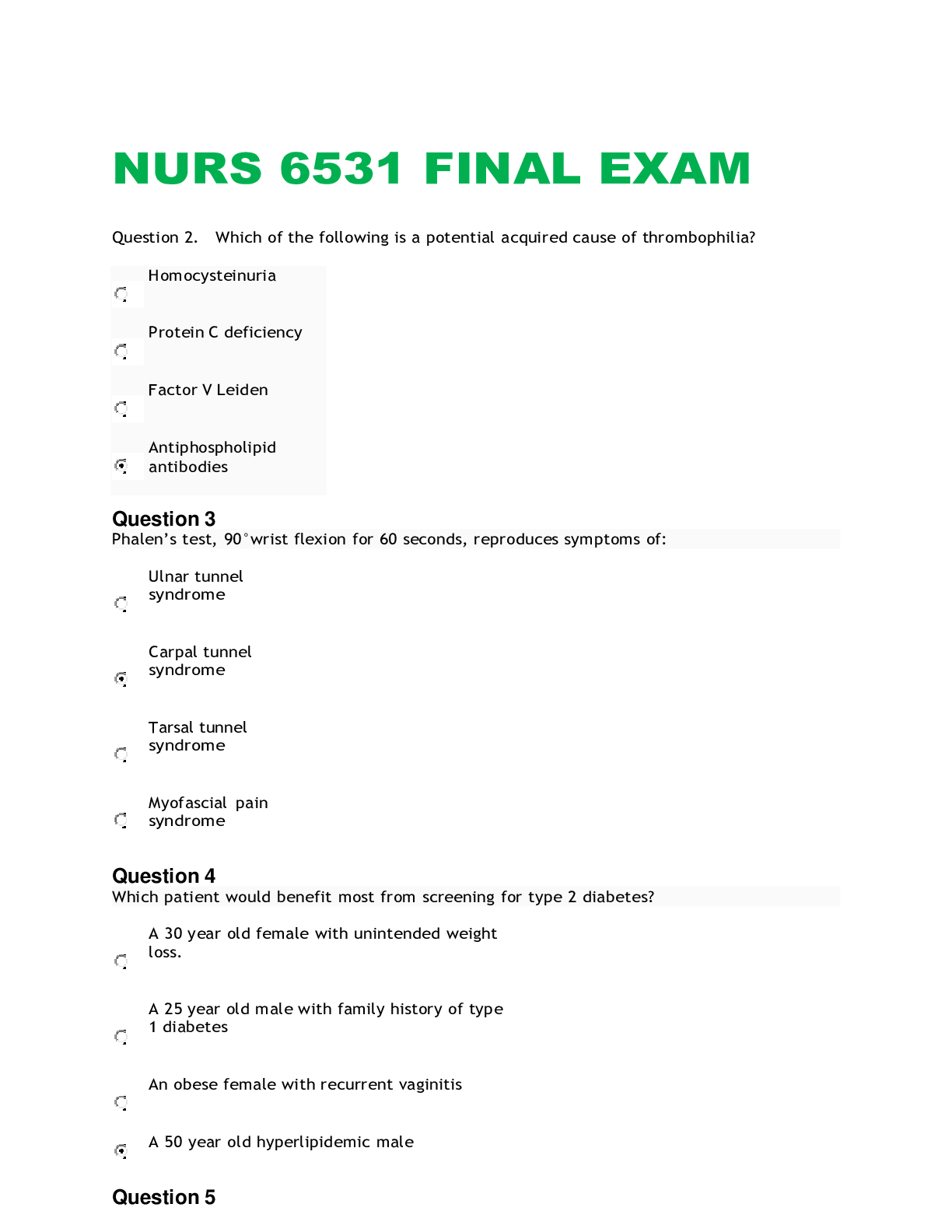
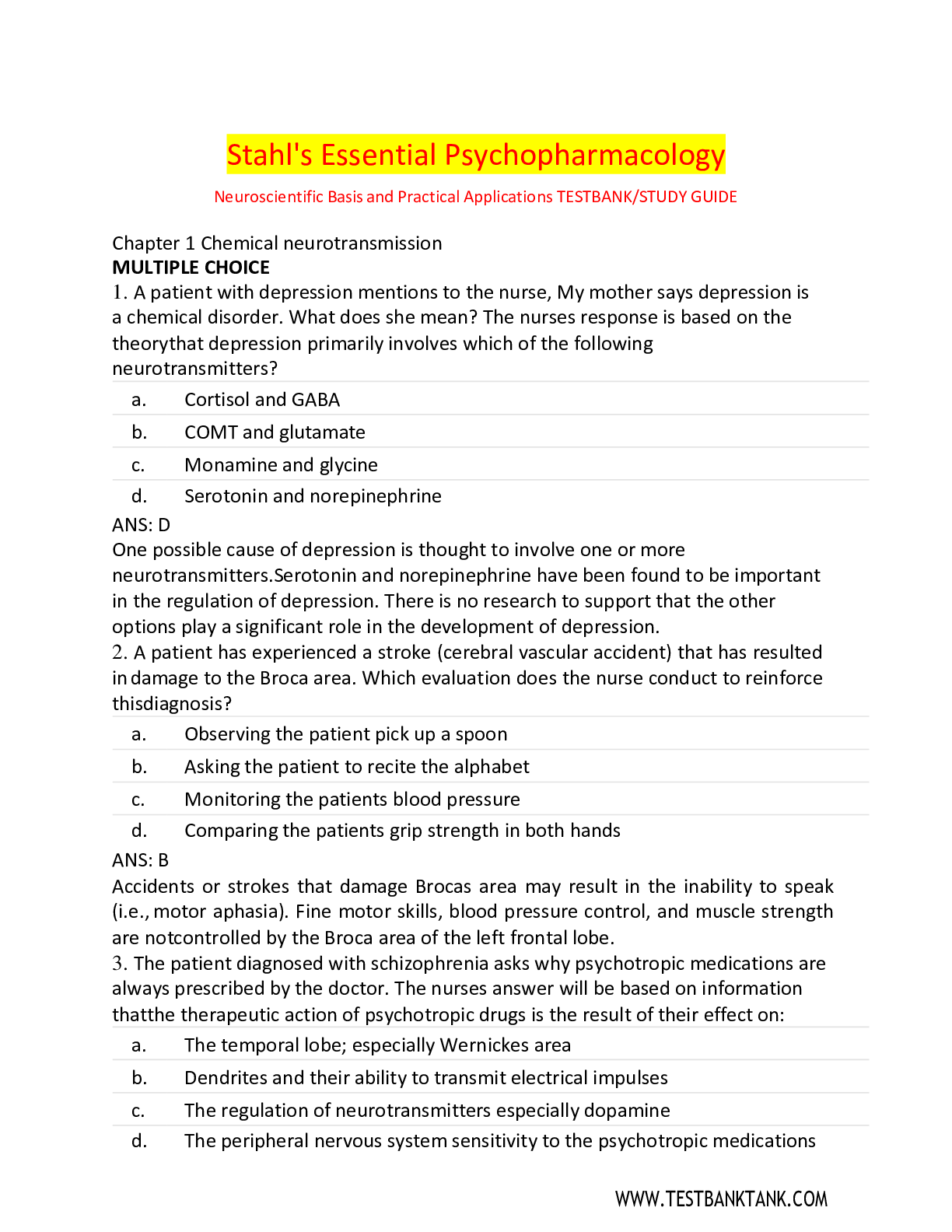
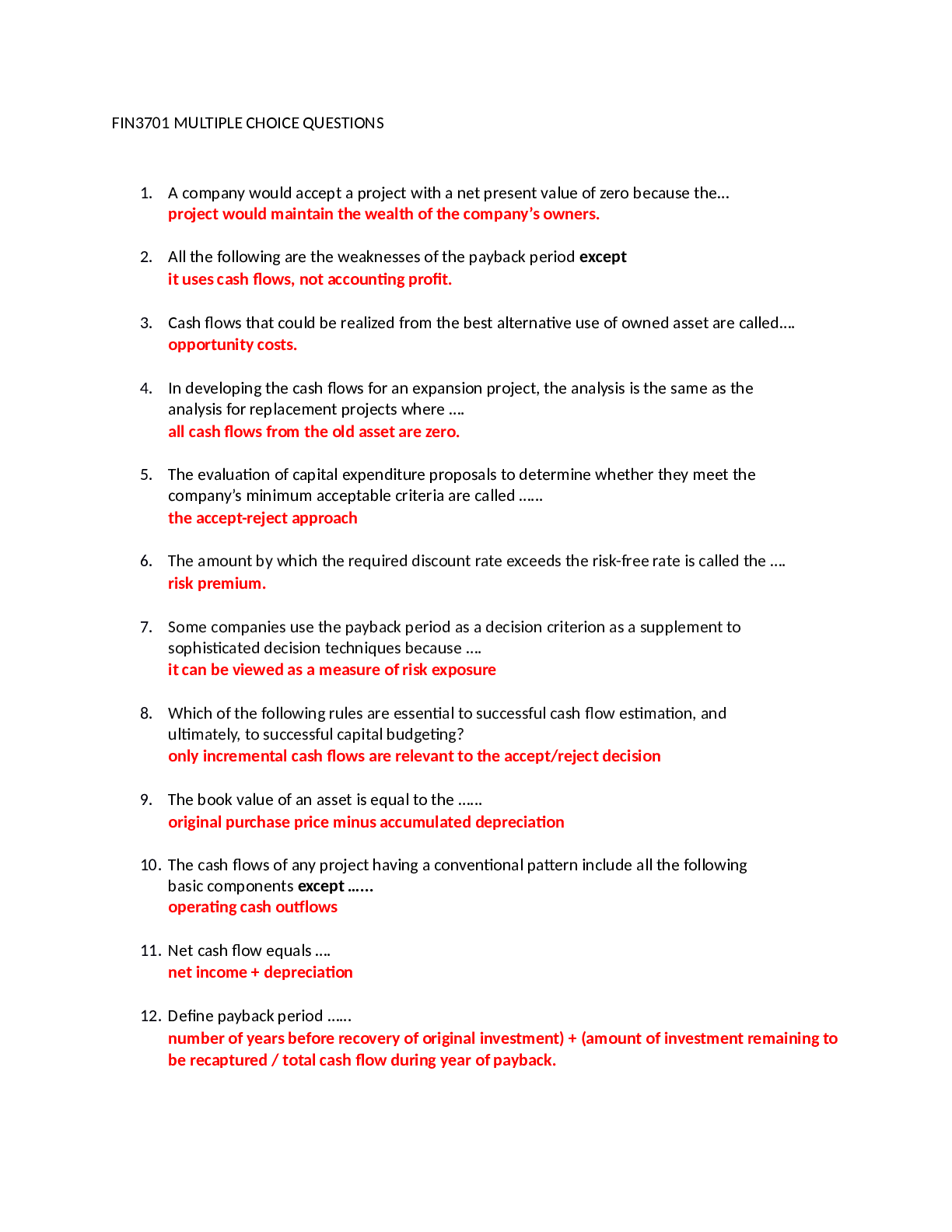
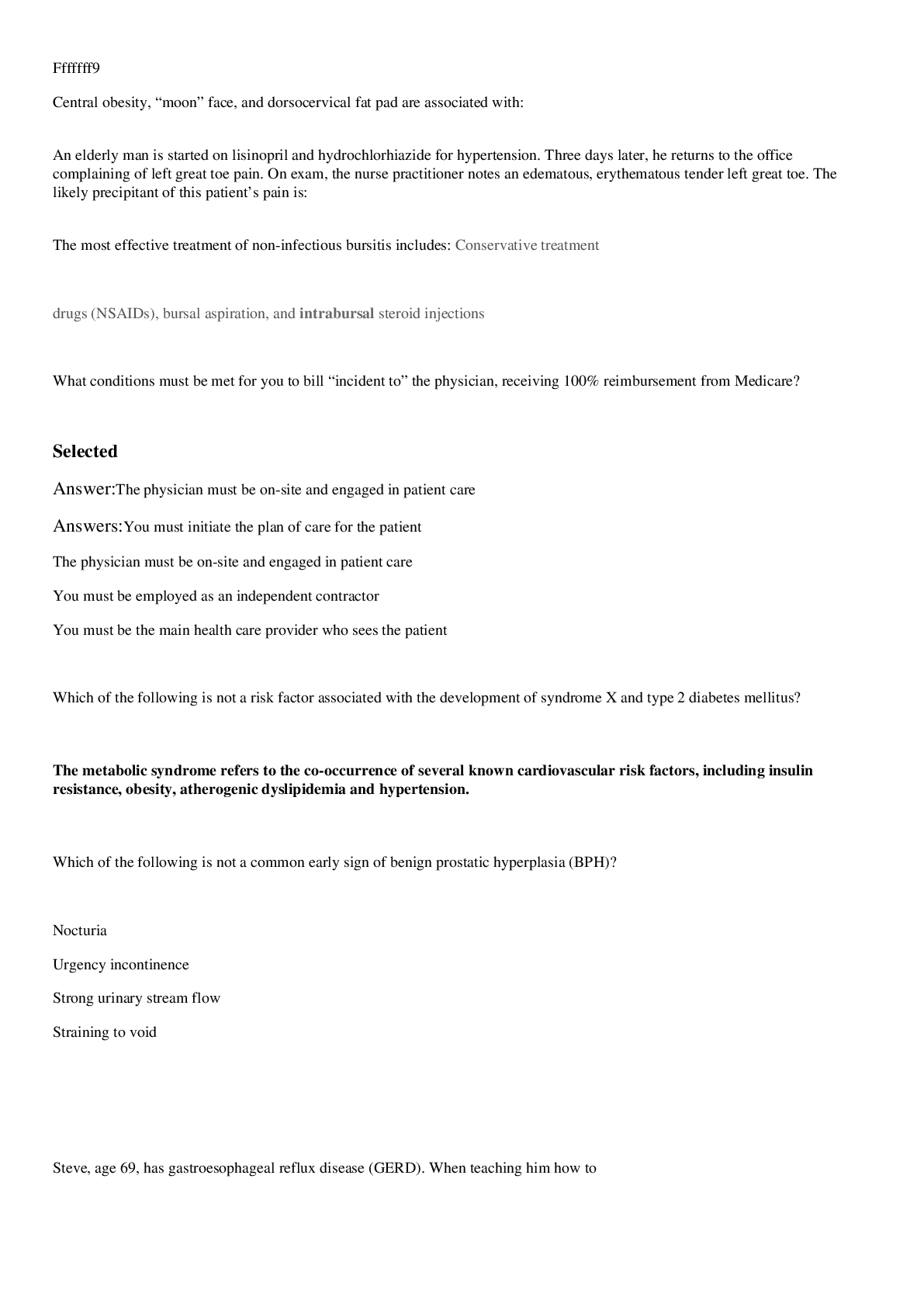

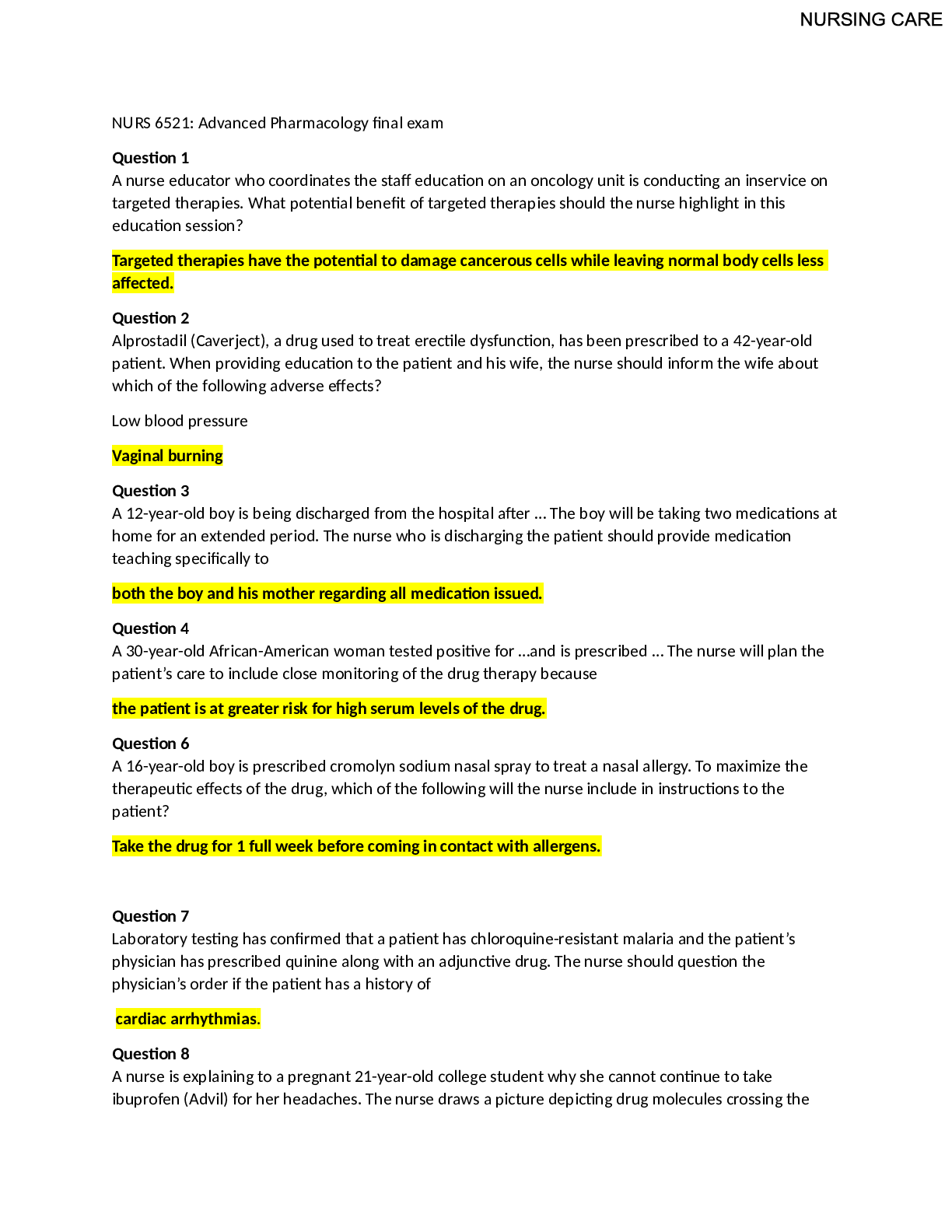
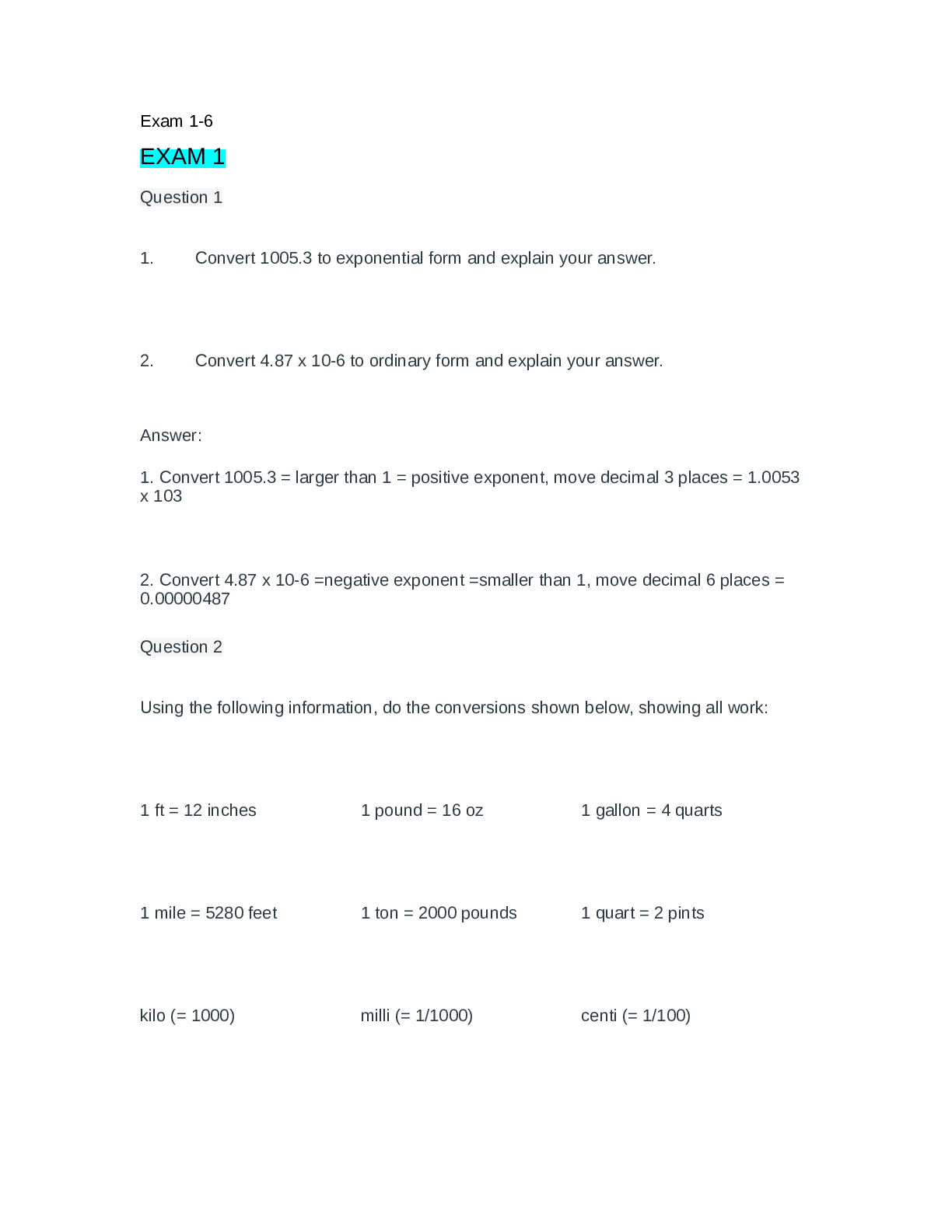
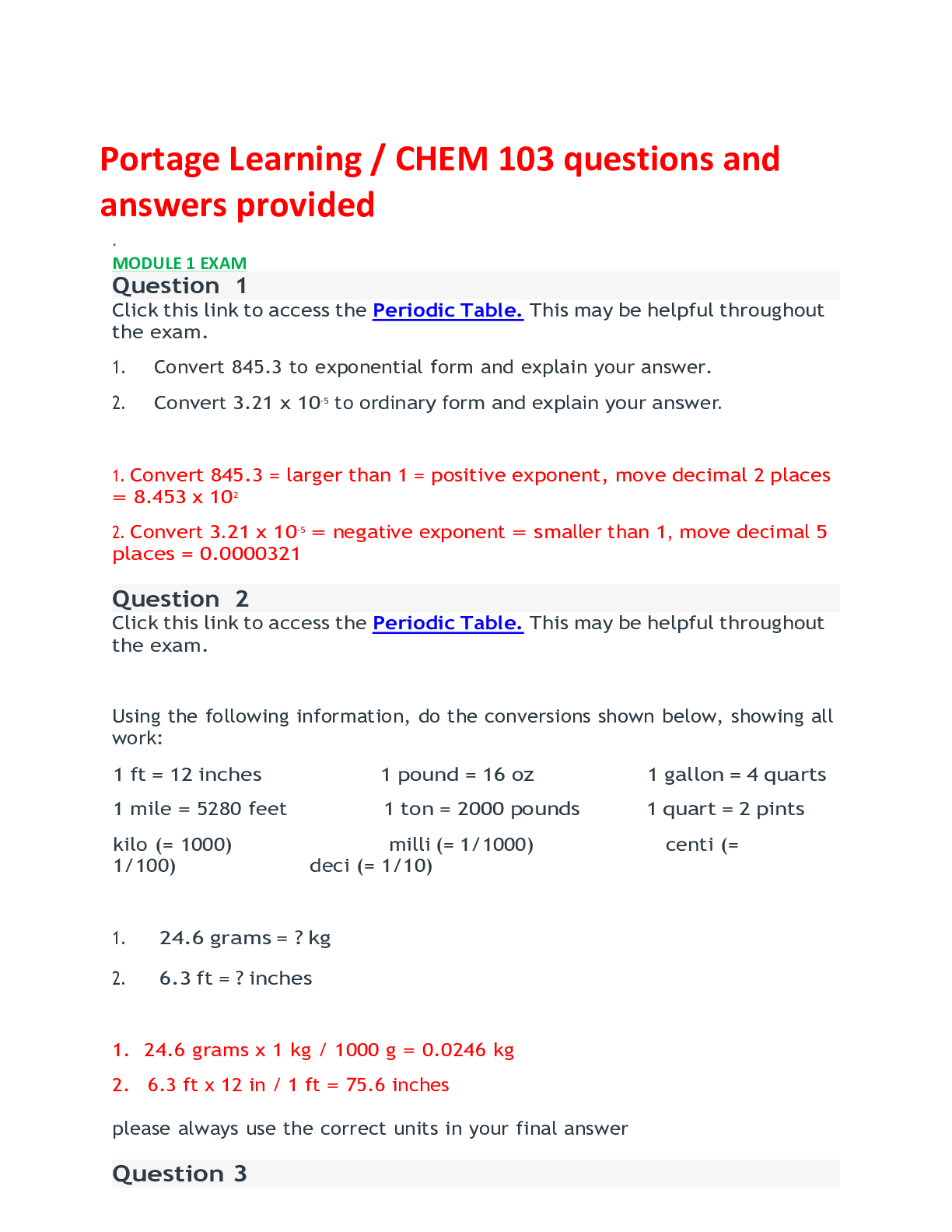
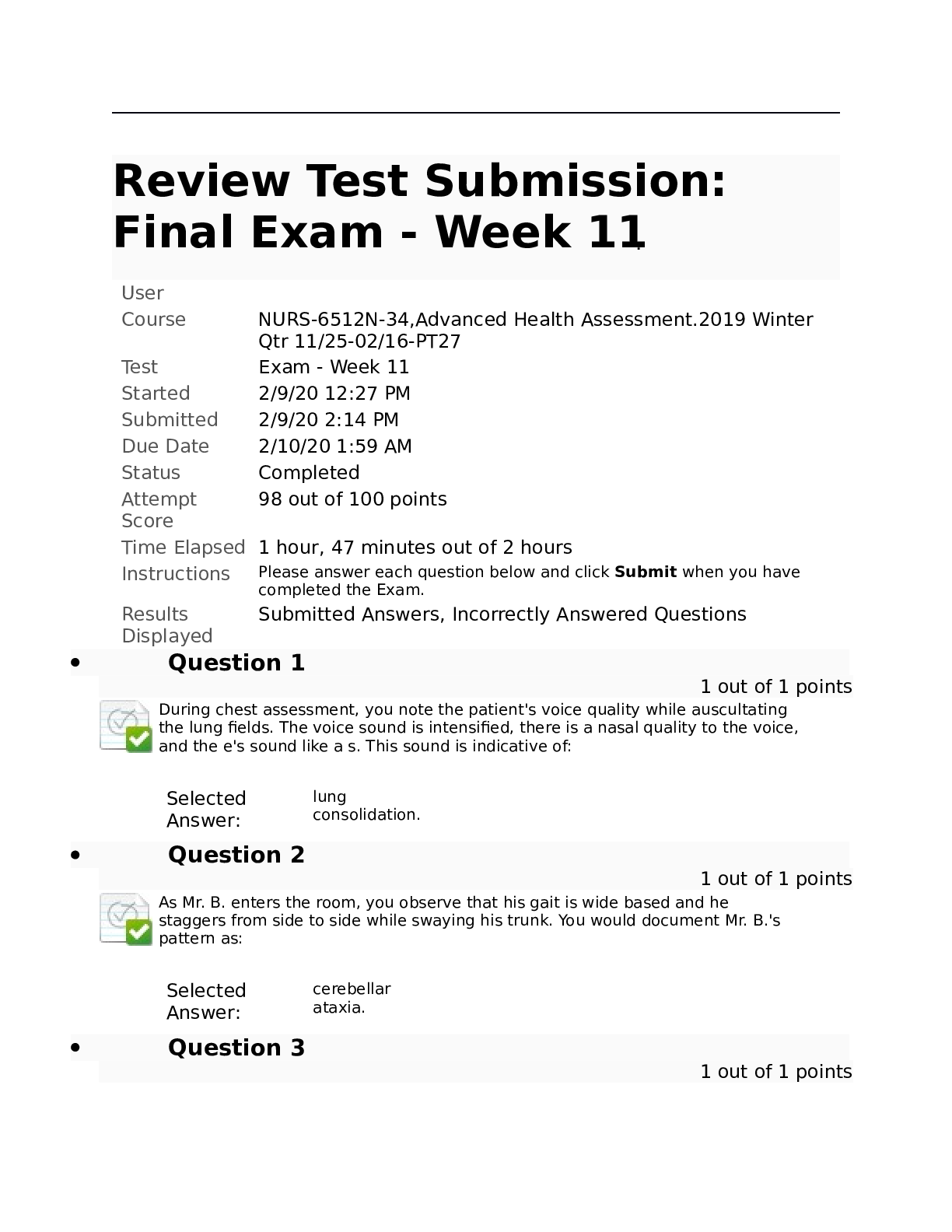
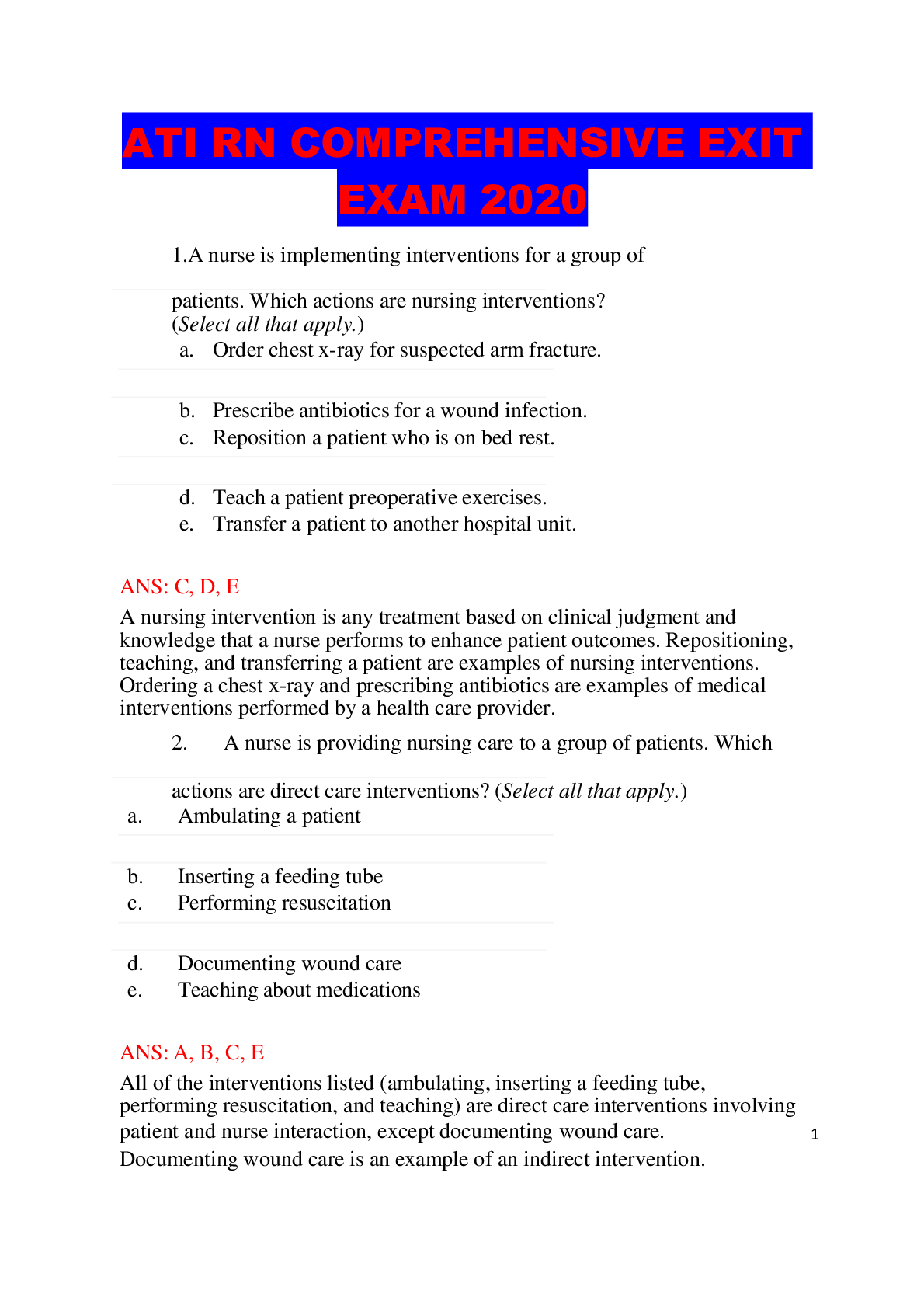

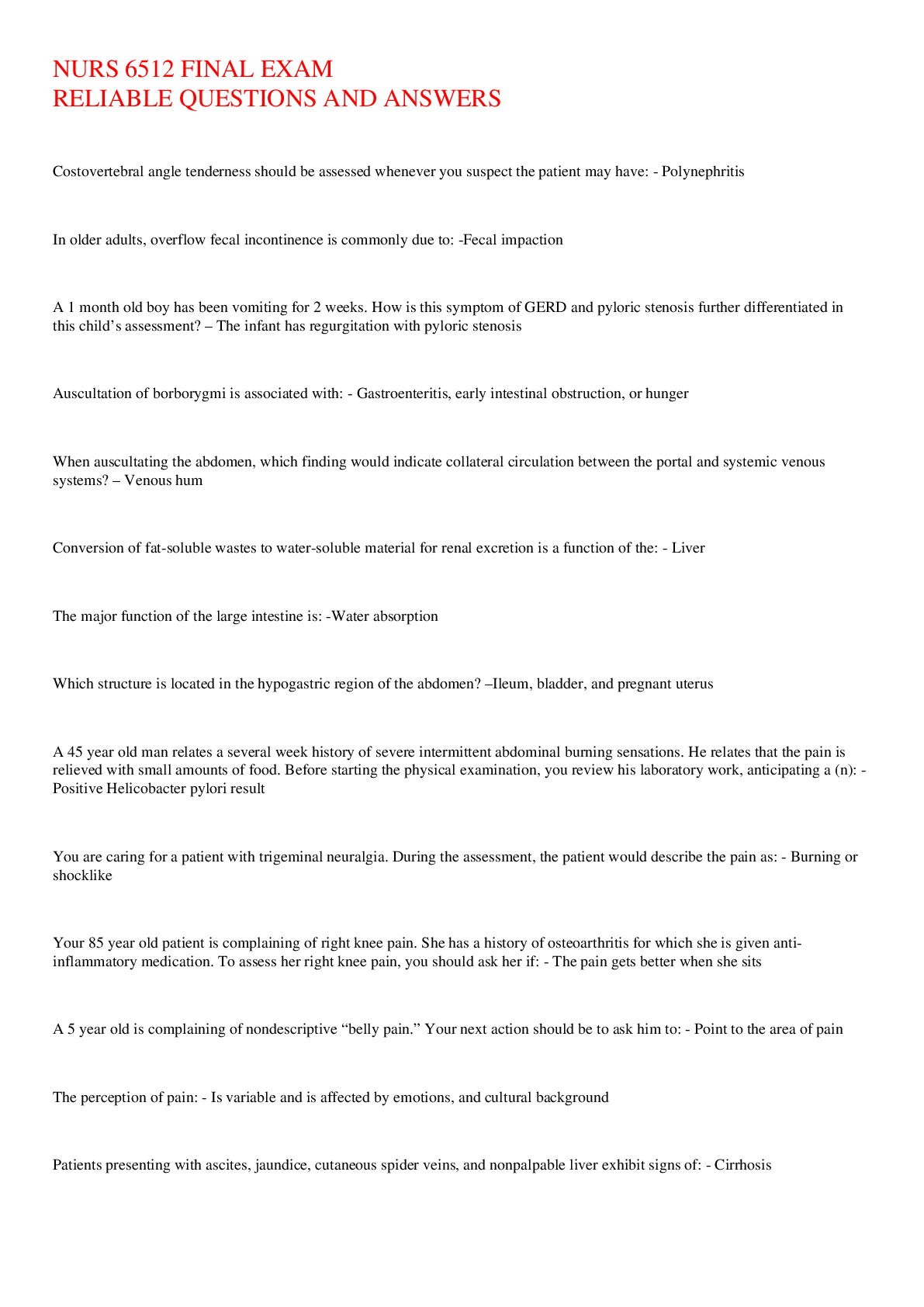
.png)
